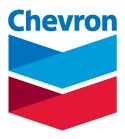So, your summer plans have changed?
You are not alone. Every college student is affected one way or the other because of the pandemic. Take solace in the fact that many are affected by the coronavirus and you won’t be at a disadvantage if you don’t pursue a summer internship. It’s certainly disappointing to think about a summer that could have been. At least, there is plenty you could do to get ahead without a summer internship.
The first step to a productive summer is to establish your goals. Use SMART goals when you are setting goals for what you want to achieve during the summer. Partner with a friend or family to stay accountable.
Once you have established the goals for the summer develop a detailed plan that contains milestones broken down by weeks in order to break the tasks into smaller chunks.
Here are some ideas on what your goals could include.
1. Create your internship
While an official internship may not be an option, you can create your own. Most internships revolve around working on projects which result in gaining new knowledge, hands-on experience, and learning new skills. This can be replicated with some initiative and potential partnerships with friends, professors, etc.
Start by identifying key skills an employer would look for when they want to hire you in the future. Use these skills as the foundation for your own internship. Research project ideas on the internet through online communities, forums, online courses, etc. You can also seek project ideas from former students, professors, and peers who are proficient in these areas. Projects that help you gain hands-on experience are valued by employers and you will be able to showcase these in your resume. I find inspiration for projects from online courses that are offered through platforms such as Coursera, EdX, Datacamp, LinkedIn Learning, etc since they are more aligned with my coursework in computer science. Other alternatives to creating your own internship are volunteering for a non-profit (Check out catchafire.org), working with local businesses, or working with a department/lab on campus to support them.
2. Fill your skills gap
Industry values your skillset. You might not have had an opportunity to develop some of the hard skills relevant to your career through your coursework. Take advantage of the plethora of online courses to fill your skills gap. When I work with students on their job search, one of the activities we do is download 10-15 job descriptions of positions the student is interested in and create a list of the top skills required for these jobs. Once we have the list of top skills and the proficiency levels required, we then compare it with the student’s resume. This exercise helps identify the skills gap that needs to be addressed in order to be a competitive candidate.
What tools do you need to develop new skills? LinkedIn Learning is available to Texas A&M students for free. Go to LinkedIn Learning and browse through the hundreds of courses relevant to you and start working today.
You can also audit courses (for free) offered by Coursera, EdX, Udacity, Udemy, Khan Academy, and several other free resources.
3. Talk to people who are where you want to be in 5 years
Start building relationships with individuals who have the job you desire. Network and learn from these individuals on how to navigate your career. Start by going to the Alumni page on LinkedIn to find individuals by searching and filtering. You can also find these individuals on Aggienetwork and send an email with the Aggienetwork branded email. Ask to schedule an informational interview. Learn more about informational interviews here.
4. Work on your personal brand
Invest in yourself. Building a personal brand has become more important than ever today. Similar to how a corporate brand represents the organization a personal brand represents who you are. A personal brand could be defined as “one’s story”.
There are many elements to building a brand. Start by reflecting and figuring out
- Who you are
- What you want to be known for
- Who is your audience
Once you have determined these the next step is to follow the experts in the industry or field you are interested in for inspiration and to generate ideas. You can seek advice by scheduling informational interviews and networking.
Now it’s time to transform your story into a brand and learn how to do the branding.
- Prepare your elevator pitch
- Build your network
- Develop & grow your online presence
To develop and grow your online presence you can start with LinkedIn since it’s the most popular professional network. Make sure you have a complete profile and start working on creating a brand for yourself by actively engaging and interacting with your network on LinkedIn.
5. Work with the career center
Don’t wait until the Fall career fair season to reconnect with your career advisors. Engaging with your advisors now will allow you to learn about the tools and resources available to you to get ahead in the job market. Get your application materials such as resume & cover letter in perfect shape by getting them reviewed by your Career Advisor. Your career advisors are also regularly hearing from employers about new opportunities and are able to help you prepare for these opportunities.
6. Have fun
It’s summertime, and while you are planning for a productive summer, be sure to incorporate some fun activities. Doing something fun & refreshing will help you rejuvenate and be more productive & healthy. Following are some examples of fun activities that can help you in your personal and professional life.
Read books, learn a new language, create your own website, start a blog, etc. Overall, have an enjoyable summer!
- Written by Abdullah Abdul Kader, Senior Career Advisor for Graduate Students in Engineering.
